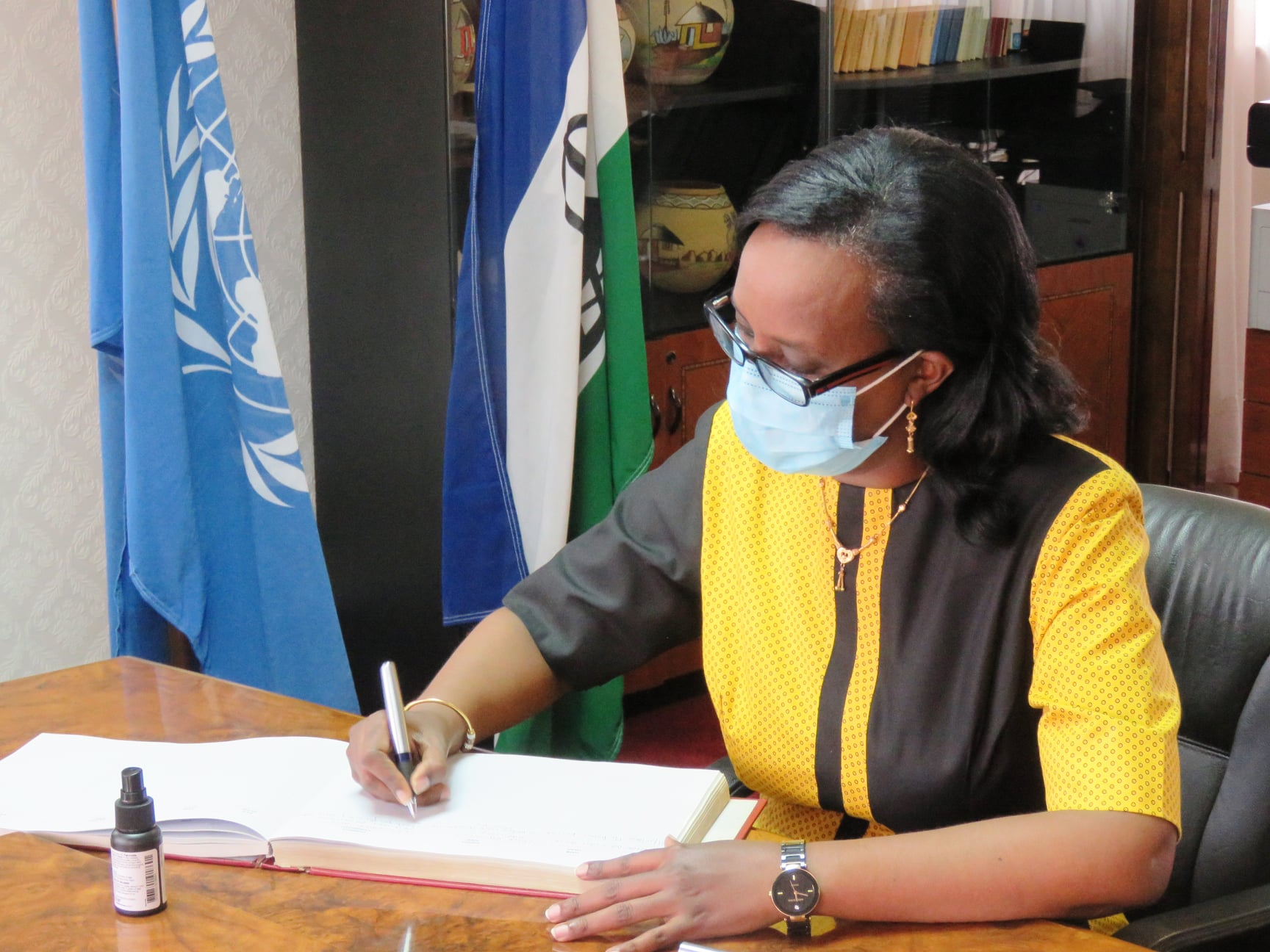…one in every three women in Lesotho is victim of GBV
Ntsoaki Motaung
Lesotho loses more than about M1.9 billion (US$113 million) each year in initiatives geared towards the fight against Gender-Based Violence (GBV), the United Nations (UN) says.
According to the UN food agency World Food Program (WFP) Country Director Aurore Rusiga, who represented UN Resident Coordinator at a GBV seminar in Maseru yesterday, every other day in Lesotho, there is a case of the killing of women and girls, a feat which has rendered GBV a crisis in Lesotho.
The UN Women, indicates that about 243 million women and girls worldwide were abused by an intimate partner in the past year alone. In Lesotho, it is one in three women and girls, less than 40% of women who experience violence and report it or seek help.
Police reports depict weekly instances of women who fall victim of abuse and assault at the hands of their male counterparts, most of whom have close relations with the victims either intimate love affairs of family ties.
Rusiga pointed out that earlier this year a UN stakeholder forum was held, where the Deputy Police Commissioner revealed harrowing statistics on gender-based violence.
“It was demonstrated that as of January 2022 the percentage of sexual violence offenders in Lesotho prisons was 44% of all prison admissions, with some prisons like Mohale’s Hoek and Mafeteng accounting for 71% and 62% of sexual violence offenders. The Covid-19 pandemic has made things worse. It has contributed to more GBV with increases in domestic and sexual violence, child marriage, sexual exploitation and abuse due to economic stress, school closures and mobility restrictions,†she said.
Dr Paul Banda an independent Physiotherapist says that there are possibly more cases of GBV and perpetrators who still get away with it because a lot of people do not report the violence.
He also indicated that there are consequences of violence on survivors which includes, lack of confidence, experience anxiety and fear as well as increased HIV infection and unwanted pregnancies.
In a move to arrest the crisis, the Counter Domestic Bill was tabled before Parliament early 2021.
The Bill applies to people who are in a domestic relationship and also recognizes the discrimination experienced by certain groups of people by virtue of their age, disability, sexual orientation and gender identity.
It also provides for the implementation of a family court which will handle cases arising out of family squabbles and also hear cases of domestic violence. It also provides for the establishment of restorative justice councils where proceedings will be guided by village chiefs.
Shelters for victims will also be established as well as rehabilitation centres for perpetrators of domestic violence.
The bill proposes stiff penalties for domestic violence and sexual offences, such as M20 000 or a 15-year jail term or both as “…a person who coerces another to reproduce commits an offence and is liable on conviction to a fine…â€
It also provides for imprisonment for a period not exceeding 15 years for an incessant sexual intercourse between a child and a parent. “A person who forces a child into marriage commits an offence and is liable on conviction to a fine not exceeding M10 000 or imprisonment for a period not exceeding seven years or both. A person who commits physical abuse commits an offence and is liable on conviction to community service or a fine not exceeding M5000 or imprisonment for a period not exceeding three years or both,†the Bill says in part.
Summary
- According to the UN food agency World Food Program (WFP) Country Director Aurore Rusiga, who represented UN Resident Coordinator at a GBV seminar in Maseru yesterday, every other day in Lesotho, there is a case of the killing of women and girls, a feat which has rendered GBV a crisis in Lesotho.
- The bill proposes stiff penalties for domestic violence and sexual offences, such as M20 000 or a 15-year jail term or both as “…a person who coerces another to reproduce commits an offence and is liable on conviction to a fine…†.
- A person who commits physical abuse commits an offence and is liable on conviction to community service or a fine not exceeding M5000 or imprisonment for a period not exceeding three years or both,†the Bill says in part.

Your Trusted Source for News and Insights in Lesotho!
At Newsday Media, we are passionate about delivering accurate, timely, and engaging news and multimedia content to our diverse audience. Founded with the vision of revolutionizing the media landscape in Lesotho, we have grown into a leading hybrid media company that blends traditional journalism with innovative digital platforms.







